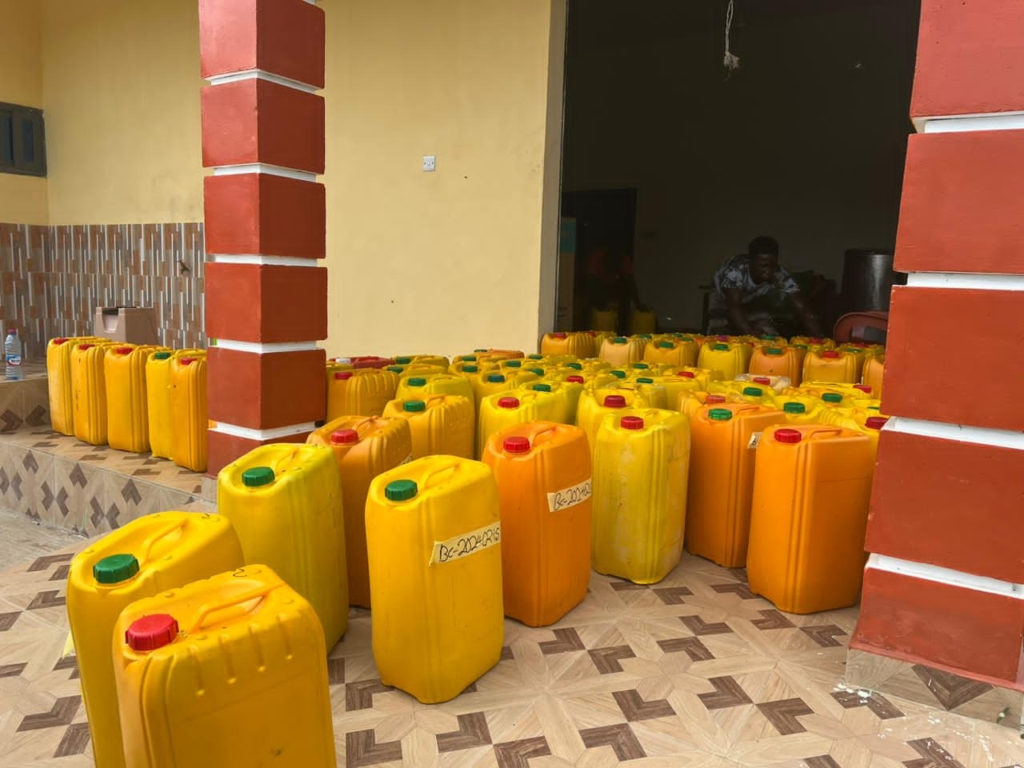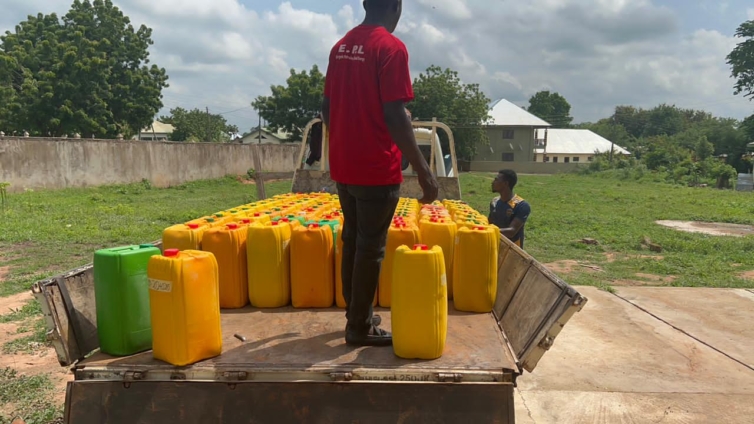An awardee of the JoyNews Impact Makers, Dr Kwame Sarkwah Aidoo makes strides as he transports the first-ever honey bees from Donkorkrom in the Eastern Region to major cities across the country.
About 3.6 kilograms of honey were ferried with assistance from his foundation, Bees for Development Ghana (BfDG) and will be distributed to cities including Accra, Cape Coast, Kumasi, and Takoradi.
This export marks a departure from the community’s usual trade of timber and charcoal. For many residents, this change brings not only environmental relief in the face of climate change but also economic benefits.

The residents explained that now more young people would venture into beekeeping rather than charcoal preparation, which would help reduce pollution in the community.
According to the manager of BfDG, Gideon Zege, the honey is free from pesticides and contaminants because the bees lived in forest.
He described the journey from forest to dining table as a wholly natural process.
“We are proud of our Nature-based Beekeepers – they are determined to make their lives better with bees and now we have the chance to bring this honey out of Donkorkrom and make it available to customers in other parts of Ghana. Who knows? In the long term, we might even achieve export!
- Read also: JoyNews Impact Makers awardee uses cash prize to buy bicycles for 10 school children at Donkorkrom
Also, a beekeeper Shafik Asminu said he was particularly excited about the news.
For many years, they have watched the forest disappear due to the rampant cutting of the forest reserves but now, the forest will be preserved.
“For too long, we have watched our forests disappearing and our environment suffer. Now, we’re not only protecting our natural forest resources but also creating a new source of income for our communities through nature-based beekeeping,” Shafik added.
Additionally, a truck driver said that he had been in the profession for many years, and although he did not like the fact that the forest was constantly degraded for timber, he had no other option.
However, now that forest reserves are being used for bee farming, he is excited because it is a healthier choice and a means to conserve the environment.

“I must say loading charcoal onto the truck is not pleasant at all as we get very dirty mixed with sweat in the process. I know people cut trees to make charcoal, reducing the forest cover – not a good practice at all. But I’m happy now. We have people who have the knowledge and skills to produce honey from the trees here,” he said.
Latest Stories
-
Interior Minister pledges collaboration with IOM to address migration challenges
1 minute -
World Cup 2026Q: Kwasi Appiah’s Sudan hold Senegal to stay top
6 hours -
Pope Francis to be discharged from hospital on Sunday
9 hours -
Stand down and tone down – Arthur Kennedy to Adwoa Safo
10 hours -
Karpowership supports Sekondi Muslim community with donation for Ramadan
10 hours -
ICGC donates GH¢300K to Mental Health Authority at Life Walk 2025
10 hours -
CONAK Technology CEO, Bernard Anyan- Mensah honoured at 100 Ghana Titans Awards 2025
10 hours -
Ecobank hosts forum for banking agents
10 hours -
2026 WC Qualifiers: Black Stars arrive in Morocco for Madagascar test
10 hours -
Adum Fire: KMA, NADMO direct adjoining and nearby market area at Blue Light to evacuate
10 hours -
Alleged GH₵10k and jewellery theft: Search warrants must be conducted with body cams – Tuah-Yeboah
10 hours -
Acting Deputy ECG MD’s ‘inadvertent’ appointment withdrawn
12 hours -
Interior Ministry declares March 31 and April 1 as holiday
12 hours -
Be thoughtful and careful with your words – Sam Jonah to leaders
12 hours -
Sustainable growth isn’t about numbers, it’s about people – Sam Jonah
13 hours

